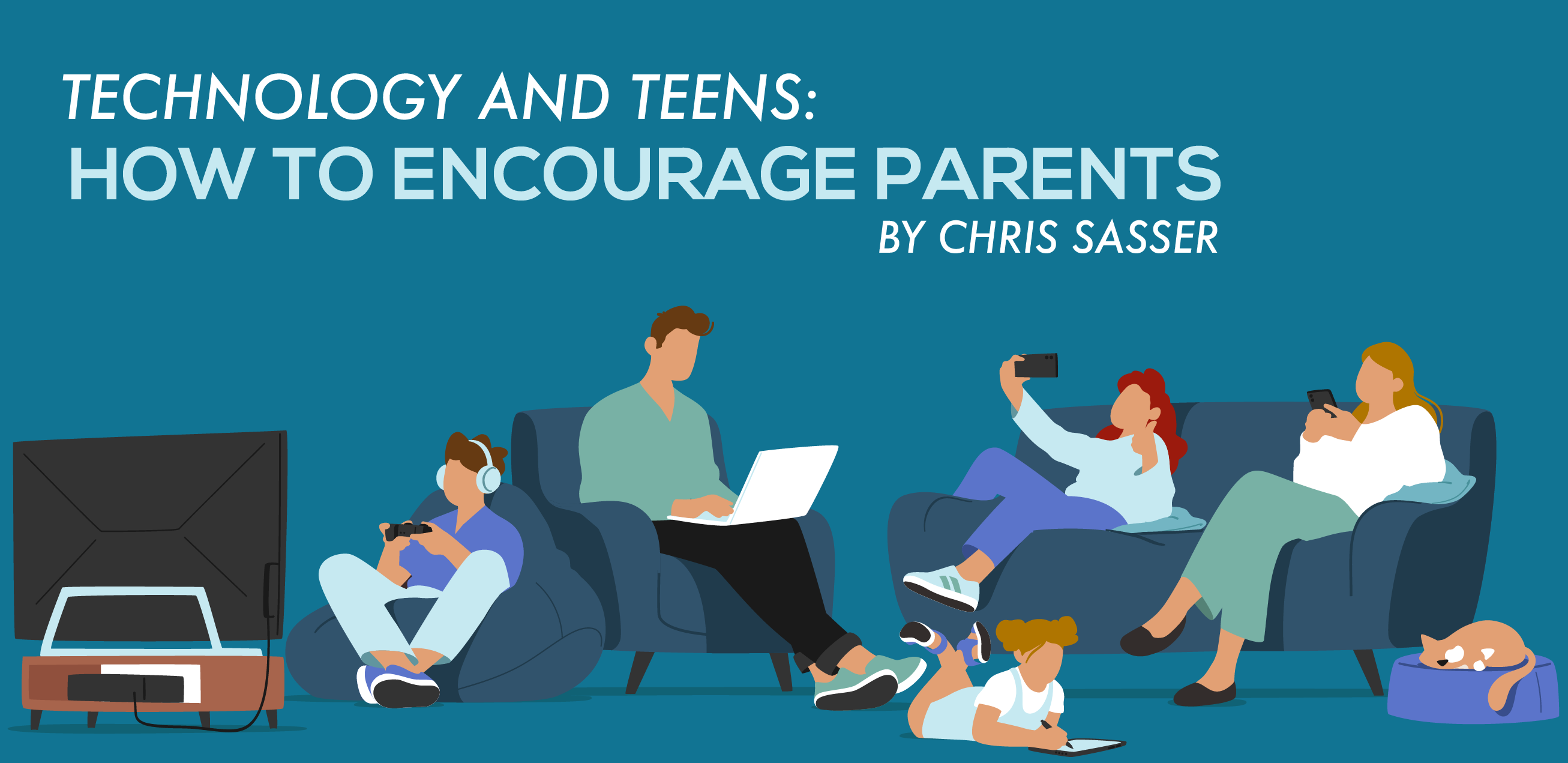Technology and Teens: How to Encourage Parents
by Chris Sasser
In the fast-paced world we live in, technology seems to be more and more at the center of what we see, think, and do. This is certainly true for the teenagers we lead, and Christian parents find themselves facing several challenges in this area of life. As you seek to be a trusted voice in the lives of families, don’t shy away from the conversations about technology. This topic is always near the top of the list when it comes to the things that parents are worried about and dealing with. Make a list of the ways you want to influence families in this area of life and develop a plan for how to share what you believe are healthy perspectives and practices. Below are a few ideas to get you started.
Teach and talk about identity in relation to technology. There is no doubt that the way our teens are interacting with technology (and specifically social media) is shaping what they think and believe about themselves. In the face of the onslaught of information and ideas that come their way, they have to have a solid foundation and know who they are. We all want them to be rooted in an identity in Christ, so we have to talk about this a lot. Help teens discover how much God loves them no matter what and help them learn how to interact with the digital world with a healthy view of self. If they can truly believe that they are a child of God and loved unconditionally, they will be better equipped to navigate the digital world and all of the messages it sends.
Encourage parents to model stepping away from the device. Teens are not the only ones who struggle to navigate technology and social media; adults do, too. Parents often feel as if they need to stay connected to work or, friends, or the world, and they have a hard time stepping away from their devices. Teenagers need attention from their parents, and they know when their parents aren’t really present. A few years ago, the non-profit ministry Axis did a survey of teenagers. One of the questions asked, “What is the #1 thing that you would like to change in your relationship with your parents?” The answer that rose to the top was, “I wish my parents would spend less time on their phones and talk to me more.” Parents in your church might just need to hear that and understand that their teens are desperate for connection, and our devices frequently get in the way of the connections we need.
Not only do teenagers crave time from their parents, but they need parents (and other adults) to model what it looks like to have healthy boundaries. They need to see that living a full and abundant life that isn’t focused on a phone or a computer is possible. If the teens in our churches and homes see us consumed by technology and social media, they are likely to follow the same path.
Encourage parents to create boundaries and stick to them. One of the ways to step away from devices is to create boundaries. Parents are often asking us about the boundaries they should create in their homes. We hear questions like, “When should my kid get a cell phone?” and “How much time on a screen is enough?” Obviously, parents will need to discern what world is best for their family, but you can have answers and recommendations. Do some research and have resources available for parents as they seek to figure out their stance on these issues. Many people today are recommending that parents should wait as long as they can to get their teen a phone (even into high school). Don’t shy away from making strong recommendations to parents. They may not agree with you or act on your ideas, but they know you have their family’s best interest at heart, and they will appreciate that.
Parents need help in lots of different areas of life, and you have the opportunity to be a helpful voice in their journey. The conversations and decisions around technology and social media will continue to chart the course for teenagers, so do whatever you can to help parents make wise choices (not easy ones) and lead their teens to a healthy place and healthy practices.

